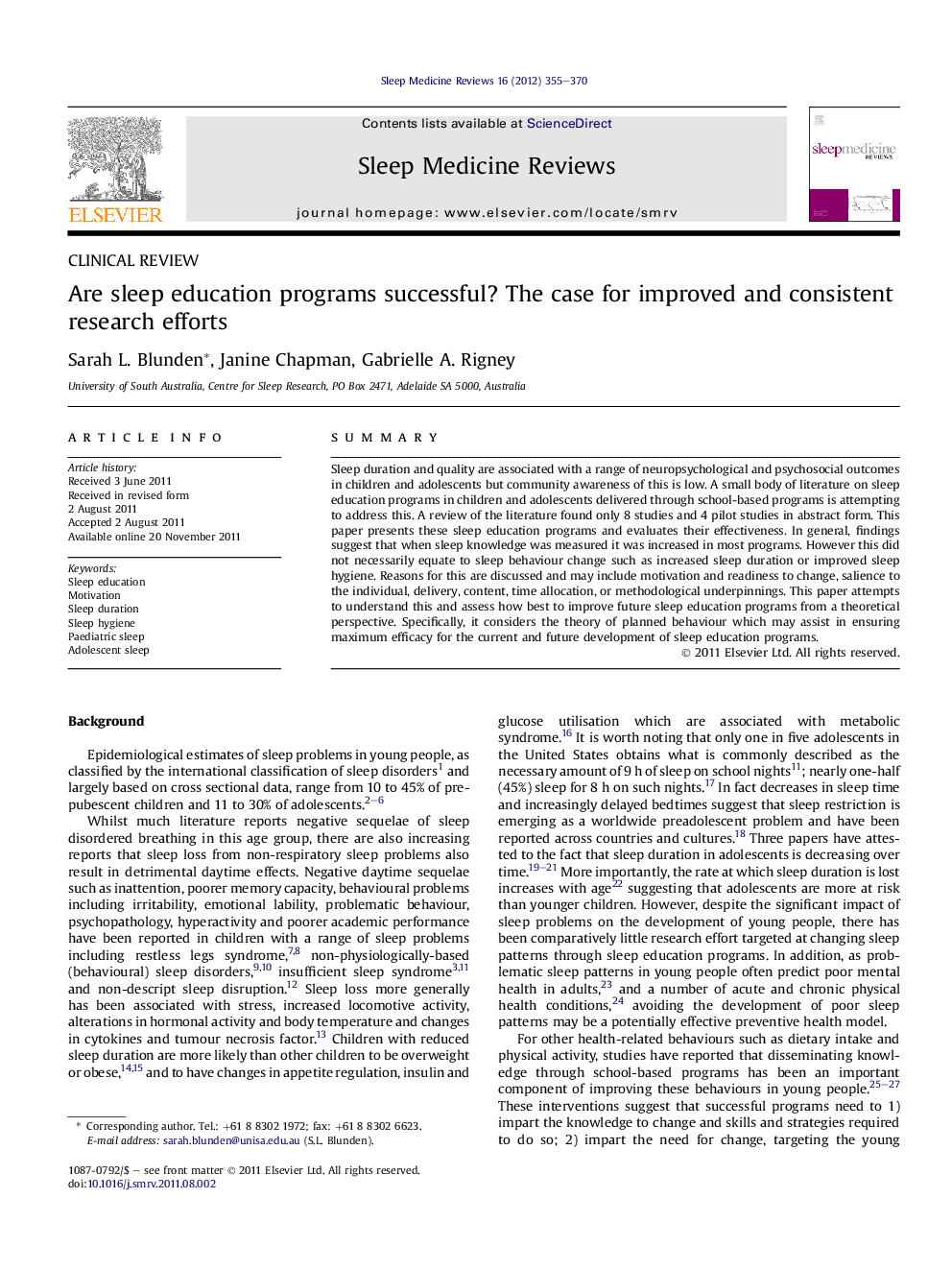| Article ID | Journal | Published Year | Pages | File Type |
|---|---|---|---|---|
| 3091704 | Sleep Medicine Reviews | 2012 | 16 Pages |
SummarySleep duration and quality are associated with a range of neuropsychological and psychosocial outcomes in children and adolescents but community awareness of this is low. A small body of literature on sleep education programs in children and adolescents delivered through school-based programs is attempting to address this. A review of the literature found only 8 studies and 4 pilot studies in abstract form. This paper presents these sleep education programs and evaluates their effectiveness. In general, findings suggest that when sleep knowledge was measured it was increased in most programs. However this did not necessarily equate to sleep behaviour change such as increased sleep duration or improved sleep hygiene. Reasons for this are discussed and may include motivation and readiness to change, salience to the individual, delivery, content, time allocation, or methodological underpinnings. This paper attempts to understand this and assess how best to improve future sleep education programs from a theoretical perspective. Specifically, it considers the theory of planned behaviour which may assist in ensuring maximum efficacy for the current and future development of sleep education programs.
